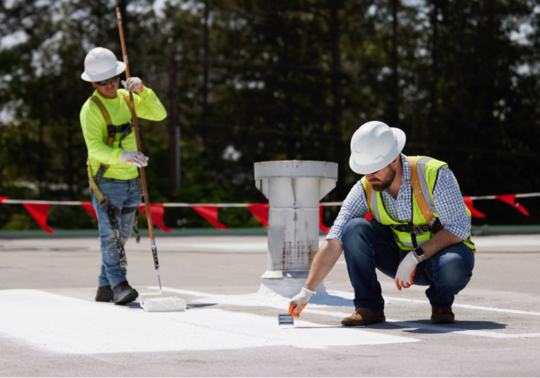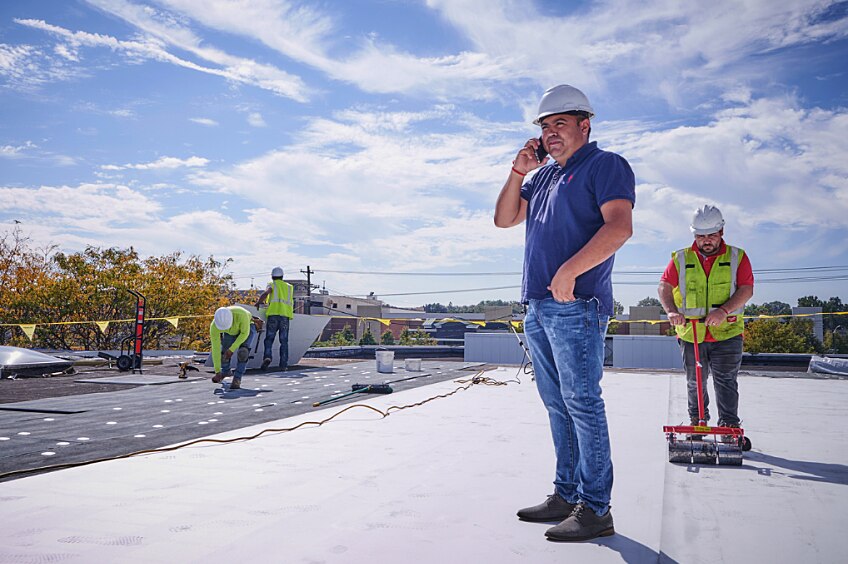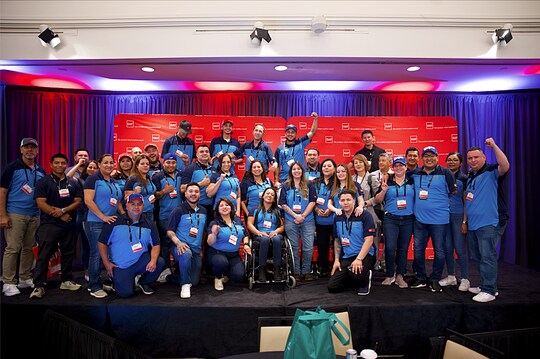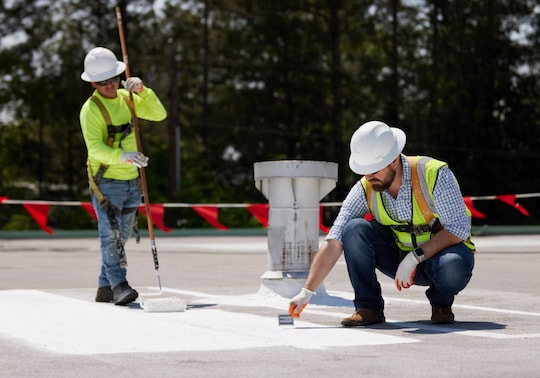
There are many routes to success for your roofing business, but forming partnerships within your community is key. As a contractor, partnerships are especially important, not only to provide new business but to help you succeed with your existing customers.
We interviewed Jason Domecq, general manager for Denver-area roofing contractor R3NG, to get his input on key contractor partnerships for successful roofing contractors.
1. Design Services
When it comes to roof replacements or new installations, design services provide support in ensuring that installations are performed correctly and with the right materials. Manufacturer design services offer the technical information contractors need to ensure their projects meet customers' needs.
GAF design services can provide customized designs for each replacement or new roof project. "They design a system that is specific to that address," Domecq says. "We know that the manufacturer's going to be coming out and inspecting it to certify the warranty, and this is what they'll be looking for." Contractor partnerships like these bring insider insights and more efficiencies—the detailed design provided by GAF takes the guesswork out of the installation, speeding up the process and allowing crews to efficiently complete a roofing project.
2. Financial Institutions
Domecq notes that a roof is one of the most expensive repairs many businesses and homeowners will make. Partnering with local financial institutions allows contractors to provide a variety of financing options to their customers. Different institutions may specialize in certain financing options or have programs that target particular customer needs. It pays to get to know the trusted financial institutions in your area, their options, and what they can offer your customers.
3. Government Agencies
Municipal governments play a large role in roofing projects, as they set the standards and codes for safe installation. There may be several different code requirements in the same city due to the various jurisdictions involved. Consider developing a relationship with inspectors and building services staff in the areas you service. They are an invaluable source of information, and you can consult with them on specific projects if you have building code concerns.
4. Insurance Companies
When dealing with roof repairs, insurance companies are often the linchpin to getting work done. You'll likely need to work with adjusters to swiftly settle claims and ask questions about coverage and limits. Getting to know exactly what is covered can save you time later on during a repair project, when speed counts.
5. Customer Service
One of the most beneficial partnerships for any roofing contractor is with the manufacturer's customer service department. They can answer questions about the manufacturer's product line as well as help resolve warranty issues. Contractors can rely on their customer service department to provide critical information and stand beside them to provide installation assistance and product recommendations.
Domecq says their relationship with GAF sets them apart from other contractors, allowing them to bring the support of the department with them when they meet with potential clients. He appreciates that GAF listens to their partner contractors. "They're looking at the root of problems to enact change and be proactive about things," he says.
6. Disaster Restoration Companies
Disaster restoration companies are usually the first contractor onsite after a home or commercial building needs major repairs. However, while they may be able to handle interior repairs, they may not have the same specialized knowledge and equipment it takes to diagnose and repair roofing issues. Your experts can be a valuable source of information to disaster restoration contractors and may lead to new customers who are recovering from a downed tree, hail damage, or other problem.
7. Tapered Design
This partnership will be one that starts from the very beginning and will be seen through to completion. Tapered Design provides great support to contractors and distributors. The Tapered Design group designs packaged options that reduce labor and waste and helps prevent things such as ponding water. The team will also provide valuable deliverables to contractors and designers such as, but not limited to design drawings and install guidance. This is a relationship that will start from the very beginning with architects and consultants to provide support during the design process to optimize the roof system performance and will continue with consultation during planning stages.
8. Community Organizations
Your company can benefit from participating in various community organizations—particularly those that potential customers themselves find beneficial. R3NG is a member of the Community Association Institute, an organization that helps property managers. Through their work with the organization, they have built strong relationships with managers throughout Colorado who need roofing services.
Contractor partnerships create avenues for connection—both with helpful experts in the industry and with potential customers. Providing expertise develops a foundation of trust and incentivizes others to share their own wisdom in return. Sharing information with community partners is a great way to establish relationships that, in turn, lead to potential business.
To get the support you need for roofing problems, reach out to the GAF team.



